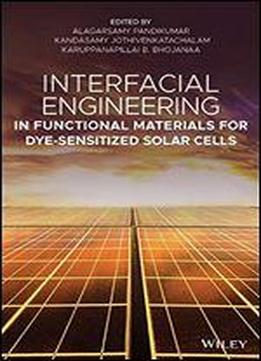
Interfacial Engineering In Functional Materials For Dye-sensitized Solar Cells
by Alagarsamy Pandikumar /
2019 / English / PDF
10.1 MB Download
Offers an Interdisciplinary approach to the engineering of functional materials for efficient solar cell technology Written by a collection of experts in the field of solar cell technology, this book focuses on the engineering of a variety of functional materials for improving photoanode efficiency of dye-sensitized solar cells (DSSC). The first two chapters describe operation principles of DSSC, charge transfer dynamics, as well as challenges and solutions for improving DSSCs. The remaining chapters focus on interfacial engineering of functional materials at the photoanode surface to create greater output efficiency. Interfacial Engineering in Functional Materials for Dye-Sensitized Solar Cells begins by introducing readers to the history, configuration, components, and working principles of DSSC It then goes on to cover both nanoarchitectures and light scattering materials as photoanode. Function of compact (blocking) layer in the photoanode and of TiCl4 post-treatment in the photoanode are examined at next. Next two chapters look at photoanode function of doped semiconductors and binary semiconductor metal oxides. Other chapters consider nanocomposites, namely, plasmonic nanocomposites, carbon nanotube based nanocomposites, graphene based nanocomposites, and graphite carbon nitride based nanocompositesas photoanodes. The book: Provides comprehensive coverage of the fundamentals through the applications of DSSC Encompasses topics on various functional materials for DSSC technology Focuses on the novel design and application of materials in DSSC, to develop more efficient renewable energy sources Is useful for material scientists, engineers, physicists, and chemists interested in functional materials for the design of efficient solar cells Interfacial Engineering in Functional Materials for Dye-Sensitized Solar Cells will be of great benefit to graduate students, researchers and engineers, who work in the multi-disciplinary areas of material science, engineering, physics, and chemistry.











